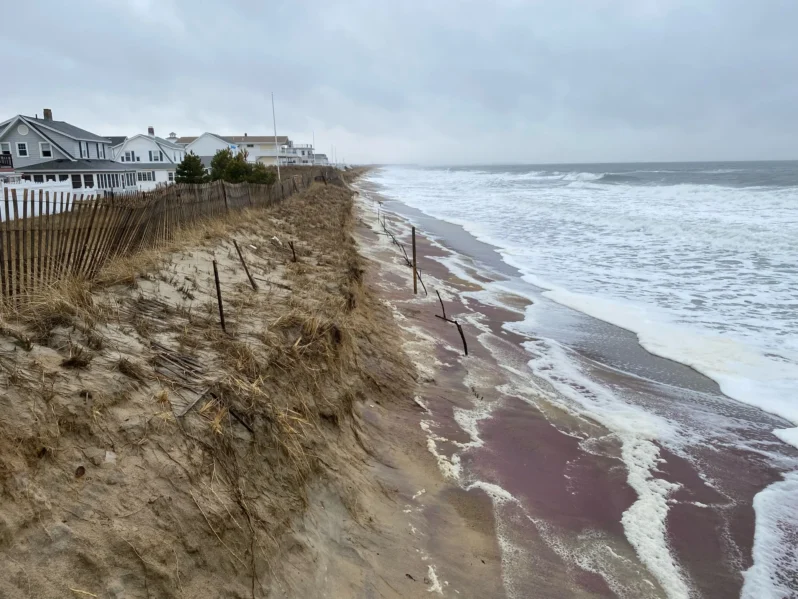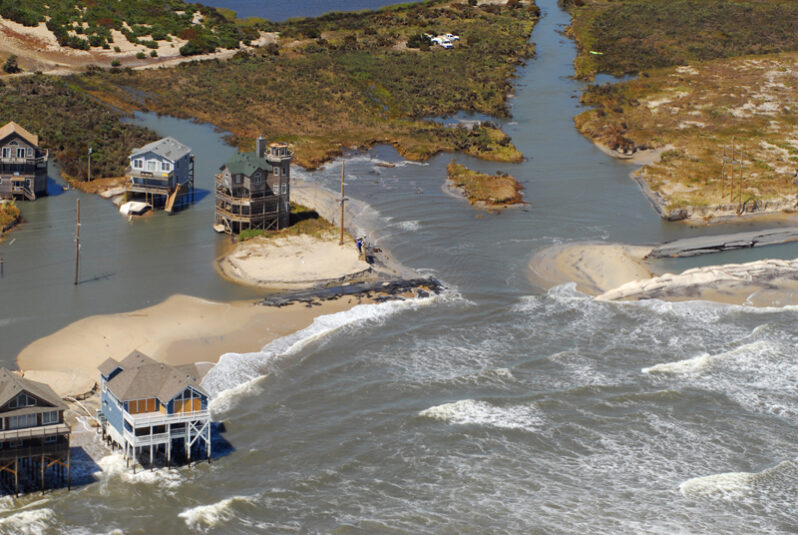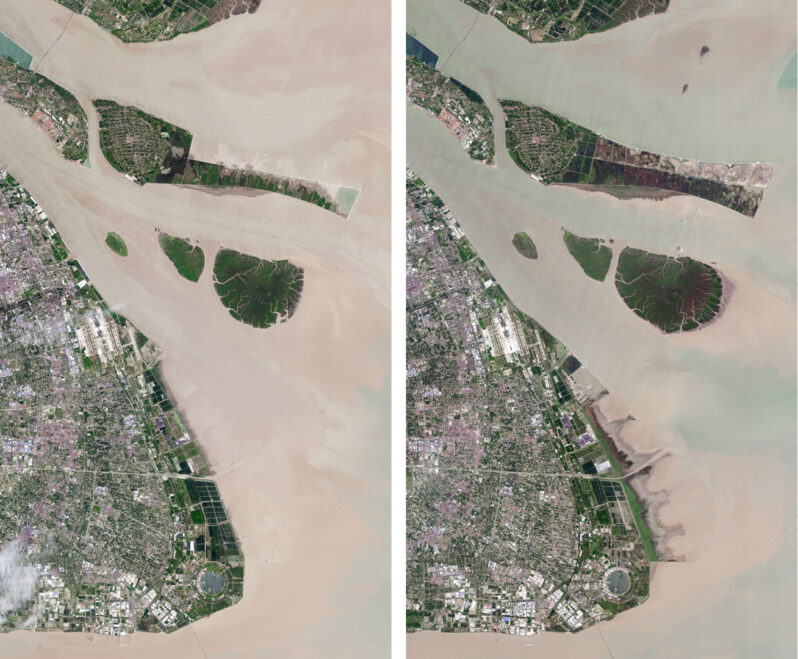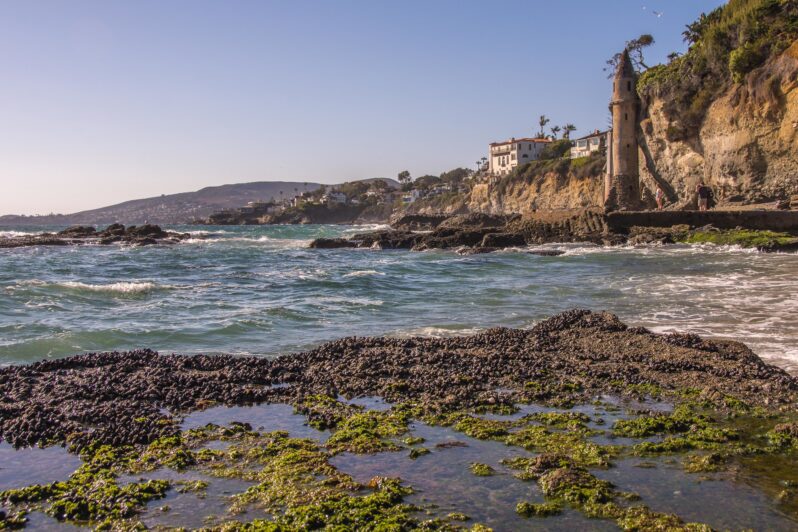At risk from rising seas, Norfolk, Virginia, plans massive, controversial floodwall – NPR

The city (of Norfolk) is now moving forward with a massive floodwall project to protect itself, in partnership with the U.S. Army Corps of Engineers. The project will include tide gates, levees, pump stations and nature-based features like oyster reefs and vegetation along the shoreline. It’s one of the biggest infrastructure efforts in city history – and an example of projects the Corps has proposed up and down the U.S. coastline, from New York to Texas….
A sea change on managed retreat? – CommonWealth Journal

As waters rise, coastal residents are increasingly facing a difficult choice: try to relocate in a difficult housing market and take losses on their homes, or get comfortable with a future where there may be multiple feet of water in their living rooms…
‘Get off my sand?’: Coastal homeowners sue over shoreline law, but state is prepared to fight – the Providence Journal

Coastal property owners have filed a federal lawsuit to overturn Rhode Island’s new shoreline-access law. The suit claims that the new legislation, which allows the public to use the shoreline up to 10 feet inland of the seaweed line, amounts to an unconstitutional taking under the Fifth Amendment. It comes as little surprise: Opponents of the new law, some whom are involved with the suit, had made clear that they intended to challenge it in court…
Study says buyout of threatened Outer Banks homes would be cheaper than beach nourishment – Star News Online

Along coastal North Carolina, engineering answers to threats from Mother Nature is a time-honored tradition to dealing with eroding beaches and threats from wandering inlets. But pumping sand isn’t cheap….Faced with a future of rising seas and stronger storms intensified by climate change, state and local officials are scrambling to keep up.(And) one option occupies a relatively rare seat at the table for discussion by local officials and residents: moving oceanfront structures out of harms way…
Ocean Sand: Putting Sand on the Ocean Sustainability Agenda – ORRAA Report

Sand is a fundamental feature of modern society…
Globally, the consumption of aggregates has increased three-fold over the last two decades, reaching an estimated 40-50 billion tons per year – an extraction far quicker than the rate at which they can naturally be replenished…
How does sea level rise challenge modern notions of property lines? – Los Angeles Times

The (California) Coastal Act is a remarkable commitment to the public trust doctrine, which traces back to Justinian I, who declared in 533 C.E. that “the following things are natural law common to all: the air, running water, the sea, and consequently the seashore.” This notion — that certain lands should be held in trust by the government for the benefit of all people — evolved into English common law, which the United States then adopted and California later wrote into its state constitution…
The global impact of sand mining on beaches and dunes – Ocean & Coastal Management

Beaches and coastal dunes have always supplied sand for a wide range of uses, and initially the extracted volumes were limited to buckets, wheelbarrows, or small pickup truck loads. However, starting in the late twentieth century, and thanks to urban development, especially for coastal tourism, coastal and river sand has been extracted at an accelerated pace, and on a much grander scale…
From Climate Exhortation to Climate Execution – the New Yorker

The Inflation Reduction Act finally offers a chance for widespread change…
So far, the climate debate has gone on mostly in people’s heads and hearts. It took thirty years to get elected leaders to take it seriously: first, to just get them to say that the planet was warming, and then to allow that humans were causing it. But this year Congress finally passed serious legislation—the Inflation Reduction Act—that allocates hundreds of billions of dollars to the task of transforming the nation so that it burns far less fossil fuel. So now the battle moves from hearts and heads to houses…
How Long Until Alaska’s Next Oil Disaster? – the Atlantic

More than 30 years after the devastating Exxon Valdez oil spill, many Alaskans are still haunted by the possibility of another such disaster. Some felt that those fears were about to be realized in 2020, when the Bureau of Ocean Energy Management (BOEM) began preparing to auction off development rights to a million acres of Cook Inlet, a proposal known as Lease Sale 258…
